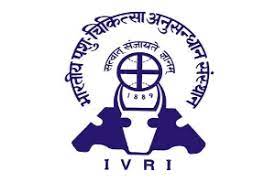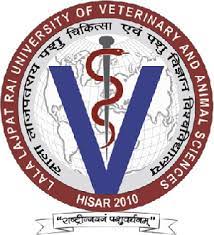A Ph.D. degree in veterinary parasitology can be a great way to advance your career. Veterinary parasitologists are among the top scientists in the world. These professionals study various types of animals including humans. Their expertise enables them to treat and diagnose diseases. Additionally, they can help to solve animal and human health problems. However, before pursuing a Ph.D. in veterinary parasitology, candidates should have a master's degree or a Ph.D. in veterinary science.
The Ph.D. in veterinary parasitology is a three-year doctorate course that prepares students for research related to animal and human health. The curriculum includes six semesters of six months each, and it focuses on theoretical and practical aspects of the field. In addition, students will develop their hands-on clinical skills, which is essential for working as a veterinarian. The program will also prepare the aspirant to be a researcher or a medical parasitologist.
A Ph.D. in veterinary parasitology is a highly-specialized degree that prepares graduates for advanced research careers related to animal and human health. It prepares graduates to solve animal and human health problems with innovative techniques and products. By developing knowledge and research skills, Ph.D. candidates can contribute to the development of vaccines and anthelmintic therapies. A Ph.D. in veterinary parasitology can lead to a variety of employment opportunities, including a job in a Research Veterinary Hospital or a position in a lab. The Ph.D. degree in parasitology can also lead to the designation of Medical Parasitologist, a title that is coveted in the field.
Ph.D. in Veterinary Parasitology Eligibility
Candidates who want to take admission in Ph.D. must have a post-graduate degree in Veterinary Parasitology and its relevant discipline with at least 55% marks from a recognized university and must have passed the national level entrance examination or university level entrance examination. National level entrance exams like UGC NET / UGC CSIR NET / GATE / SLET or University entrance exams consist of written test and personal interviews.
The Benefits of a Ph.D. in Veterinary Parasitology
A Ph.D. in veterinary parasitology will equip you with research skills. You can find lucrative positions at reputable universities and environmental firms. A Ph.D. in this field is also the best way to earn your doctorate. You will have to attend entrance examinations and go through a group discussion and direct interview. The degree will also help you get a better job as a professor.
You must be a graduate of a recognized college or university. You must have at least 60% aggregate marks. The minimum percentage of marks may vary from institute to institute. The requirements and procedures to apply for a Ph.D. in veterinary parasitology are different for every institution. In addition to research, the program will prepare you to conduct experiments on parasites. Since this program deals with the study of bacteria and viruses, it will help you cure animal diseases.
Those who choose to pursue a Ph.D. in veterinary parasitology should have broad-based educational backgrounds. A Ph.D. will help you obtain the wide range of knowledge required by the most successful parasitologists. You must also have good computer skills and a background in mathematics. In addition, you must be able to write well in English. Those with only a B.S. degree in veterinary parasitology can still find employment in the field. The potential for growth and advancement is limitless.
The Career and Job Opportunities of a Ph.D. in Veterinary Parasitology
A Ph.D. in Veterinary Parasitol is required to become a research scientist and lecturer in veterinary parasitology. Graduates will undertake original research in their field of specialization and complete their dissertation and research thesis. The average salary for a veterinary parasitologist is $67,790 a year, though this figure varies greatly depending on the individual's experience and qualifications.
The Ph.D. program prepares students for scientific research and teaching. It develops their knowledge and skills of infectious diseases, disease ecology, and knowledge of the field. It provides the essential knowledge to conduct research projects. This degree is a great option for those who are interested in working in the field of veterinary parasitology. Aspirants for this Ph.D. program may also choose to work in pharmaceutical companies or the food industries.
A Ph.D. in Veterinary Parasitology equips students with the necessary skills for conducting research. They are well-versed in animal parasites and have the potential to develop vaccines or treatments for anthelmintic resistance. They are also able to apply their knowledge in agriculture, aquaculture, and human health care. There are many other employment opportunities available for veterinary parasitologists, and those with a master's degree can work as a parasitologist, researchers, or even a physician.
The Future Scope of a Ph.D. in Veterinary Parasitology
The doctorate program in veterinary parasitology is a highly competitive course and the entrance requirements for the Ph.D. are high. However, there are many advantages to pursuing this career. You can expect to have a great career in this field. There are several jobs in this field, so it will be rewarding to become one of the top researchers in the field.
With a Ph.D. in veterinary parasitology, you will be able to study the relationships between animal and human health and parasites. The program is designed to teach students how to identify illnesses in animals and the best remedies for those ailments. Additionally, you will have the opportunity to work as a professor in top veterinary colleges and research institutes. The scope of a Ph.D. in veterinary parasitology is wide-ranging.
If you are passionate about animals and the health of the environment, a Ph.D. in veterinary parasitology will help you to work for the public. Not only will you have a great career in a field that affects human health, you'll also be able to find lucrative jobs, such as professorships at reputable universities. Once you complete your Ph.D. program, you can work as a consultant or a researcher in a company or government agency.
Ph.D. Research Programme duration
The Ph.D. in Veterinary Parasitology course is a minimum of 3 years and a maximum of 5 years in duration. This depends on the university offering the course.
Fees for research program for Veterinary Parasitology
The average fee for Ph.D. in Veterinary Parasitology degree is between INR 50000 and INR 500000.
 5 Years
5 Years
 PhD
PhD
 Research
Research
















 back
back